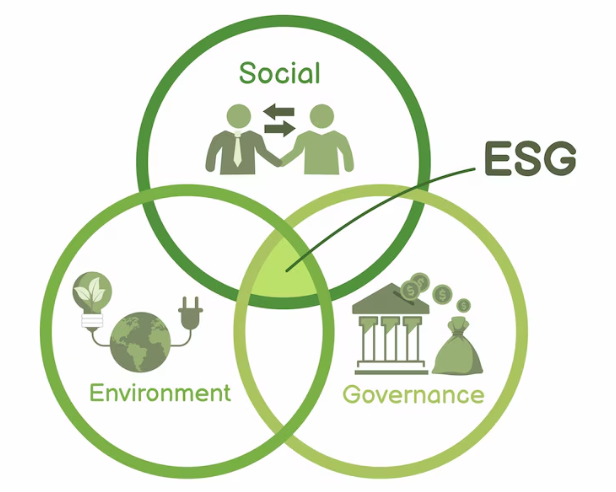As businesses face increasing pressure to act responsibly and sustainably, Environmental, Social, and Governance (ESG) concerns have become integral to the modern corporate landscape. With growing regulatory demands from both governments and investors, companies must align their practices with robust ESG frameworks to ensure compliance and secure long-term success. ESG advisory services play a crucial role in helping organizations navigate these complexities. By providing expert guidance on ESG matters, these services enable businesses to not only meet regulatory requirements but also enhance their overall sustainability efforts, improve brand reputation, and create lasting value.
In this blog, we will explore how ESG advisory services assist businesses in meeting regulatory demands, the benefits they offer, and why partnering with an ESG advisor is essential for businesses in today’s increasingly regulated and sustainability-focused world.
The Role of ESG Advisory Services
ESG advisory services are specialized consulting offerings provided by experts who guide businesses in developing, implementing, and maintaining effective ESG strategies. These advisory services are designed to help organizations navigate complex regulations, assess their ESG risks, and integrate ESG considerations into their day-to-day operations. Here’s how they help businesses meet regulatory demands:
1. Navigating Regulatory Requirements
One of the most critical ways ESG advisory services assist businesses is by helping them understand and comply with evolving regulations. As ESG reporting requirements continue to gain momentum, businesses often find it challenging to keep track of the numerous regulations set by different jurisdictions.
ESG advisors are experts in understanding these regulations and can help companies interpret and align their reporting processes with local and international requirements. Whether it's the CSRD in Europe, SEC regulations in the U.S., or other local mandates, ESG advisors can guide companies through the regulatory maze. They ensure that all reports are accurate, transparent, and meet the required standards, thus helping businesses avoid penalties and reputational damage.
2. Risk Assessment and Management
A key component of ESG is risk management. Businesses must understand the ESG risks they face, including environmental risks, labor practices, and governance-related issues, which may not always be obvious. ESG advisors assist companies in conducting comprehensive ESG risk assessments, which help identify potential threats that could affect business operations and regulatory compliance.
For instance, companies with a heavy carbon footprint may be at risk of facing stricter carbon taxes or being penalized for non-compliance with environmental regulations. Similarly, poor governance structures can lead to shareholder dissatisfaction, legal challenges, or regulatory scrutiny. ESG advisory services help companies anticipate and mitigate these risks through tailored strategies and solutions.
3. Developing and Implementing an ESG Strategy
Creating an effective ESG strategy requires more than just meeting regulatory demands – it requires a long-term commitment to sustainability and social responsibility. ESG advisors work with businesses to develop customized ESG strategies that align with regulatory requirements while also focusing on long-term value creation.
Advisors help businesses define clear ESG goals, assess their current ESG performance, and implement initiatives to improve their impact. Whether it's reducing carbon emissions, improving workforce diversity, or enhancing board transparency, ESG advisory services provide actionable insights and strategies to help businesses achieve their objectives in a way that complies with regulations and supports sustainable growth.
4. Data Collection, Reporting, and Disclosure
One of the most complex aspects of ESG compliance is data collection and reporting. Businesses are now required to disclose a significant amount of information about their environmental, social, and governance practices, and this data must be accurate, verifiable, and transparent.
ESG advisory services provide guidance on how to collect the right data, ensuring that it is comprehensive and aligned with reporting standards. Advisors assist businesses in creating reports that meet the specific requirements of regulations such as the Global Reporting Initiative (GRI), SASB standards, and TCFD recommendations. Through these reports, businesses demonstrate their commitment to transparency and accountability.
Moreover, ESG advisors often provide support in ensuring that businesses can communicate their ESG performance to investors, regulators, and other stakeholders in a compelling and credible manner. With the rise of sustainable investing, accurate ESG disclosures can significantly influence investor decision-making, so having reliable and well-prepared reports is critical.
The Bottom Line: Why ESG Advisory Services Are Essential
As the demand for sustainable and responsible business practices intensifies, companies must take proactive steps to comply with ESG regulations. ESG advisory services provide invaluable support in navigating this complex landscape, ensuring that businesses not only meet regulatory requirements but also strengthen their ESG performance. By partnering with experienced ESG advisors, businesses can manage risks, improve their transparency, and drive long-term value creation, all while enhancing their reputation and meeting the expectations of stakeholders.





Comments